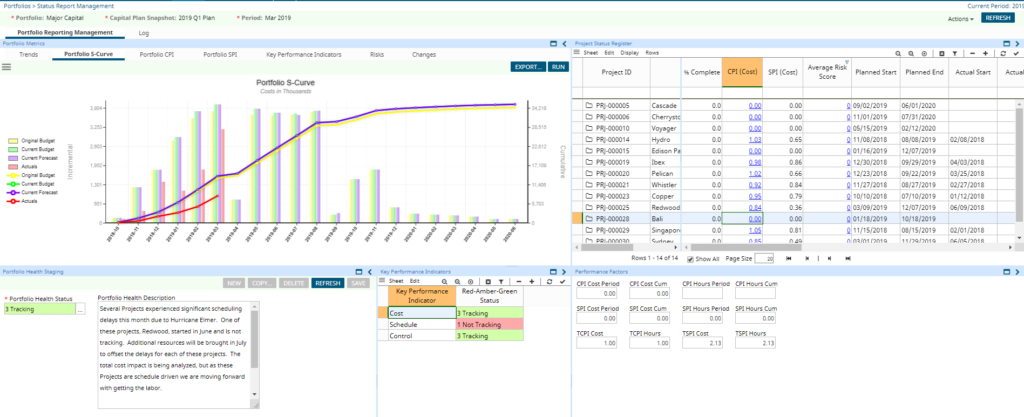
Project KPIs, or Key Performance Indicators, are measurable values that help you evaluate project performance. When executing a project, it is important to develop meaningful KPIs that help ensure projects are delivering intended benefits. This traditionally meant staying within budget and on schedule. But in today’s complex and competitive landscape, KPIs also need to ensure projects are supporting company strategy and goals.
Enterprise Project Performance (EPP) is a mindset that expands from improving outcomes of individual projects to one that also heavily considers achievement of business objectives for ALL projects within your organization.
Why Project KPIs Are Important
With this approach, it’s critical to establish a standard set of Key Performance Indicators (KPIs) across your organization. The purpose behind establishing these metrics is as a method to consistently measure that which has been agreed as important in delivering project (and organizational) successes.
EPP software platforms facilitate this approach by integrating processes that span the full lifecycle of projects, including:

By integrating these processes and the sub-processes, you can eliminate common errors and data siloes that inhibit visibility into performance. In turn, you have the potential to fully maximize returns and margins across all projects.
SMART Project KPIs
When developing KPIs for your organization, it is important to make sure they are SMART KPIs. This means you need to make sure your project KPIs are Specific, Measurable, Attainable, Realistic, and Timely. SMART is a useful guide for goal setting, and is proven to increase the chances of achieving a goal.

All of these elements should be accounted for in the KPIs embedded within a good EPP solution.
Types of Project KPIs for Performance Measurement
Thriving in the new landscape is possible by using Enterprise Project Performance to leverage key performance indicators that fall into three categories:
Efficiency KPIs
Efficiency KPIs enable teams to reduce the time needed to perform tasks. These can include measurements like:
Predictability KPIs
Predictability KPIs lead to earlier identification of issues and enable corrective action to reduce cost and schedule overruns. These include things like:
Control KPIs
Control KPIs help teams improve the performance of every project in a portfolio and gain consistency in project delivery by enforcing standards. Examples of Control KPIs are:
Financial Impacts of Measuring and Improving Project KPIs
These new measurement tools then unlock the potential for significant improvements to financial and business outcomes:
Conclusion
If the right KPIs aren’t tracked effectively, it will be difficult for a company to gain actionable insight into the processes that need improvement, as well as effective processes that should be replicated across projects. It’s important to monitor the right mix of key performance indicators so an enterprise can remain competitive while also achieving favorable short-term financial performance.
Essential KPIs can shed light on a project’s performance and success. They should be maintained by all parties involved in a capital project. EPP technology can provide a competitive advantage by helping you add and measure these critical KPIs to your projects.